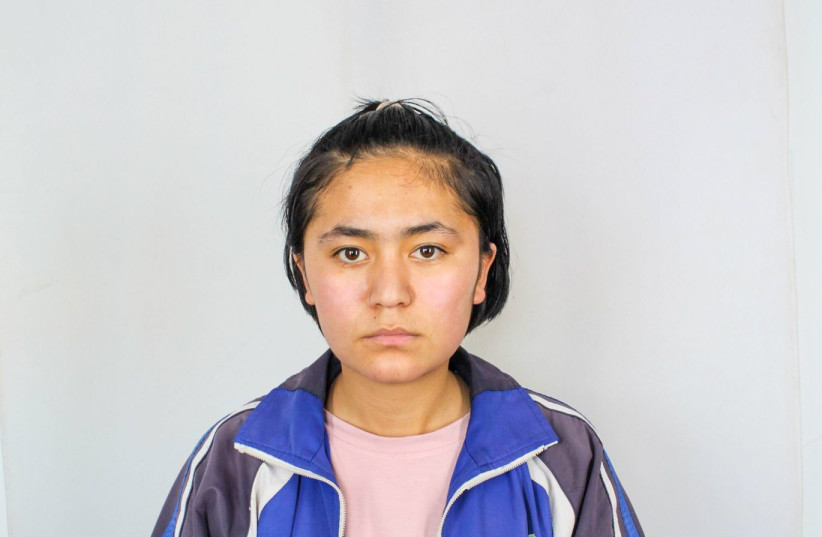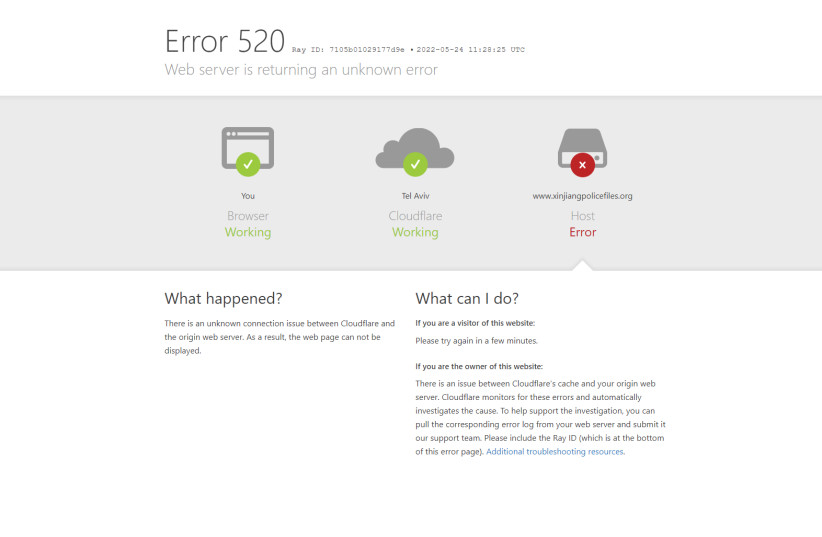A huge trove of files and documents on the alleged Chinese activities in Uyghur "re-education camps" was revealed on Tuesday after a Xinjiang police network was hacked.
Explore the collection here.
Coined the "Xinjiang Police Files," the cache was obtained by a third party from internal Xinjiang Uyghur Autonomous Region (XUAR) networks and includes a staggering amount of information: over 2,800 images of detainees, over 300,000 personal records, over 23,000 detainee records and over 10 camp police instructions.
The files were made public by China Studies expert Dr. Adrian Zenz from the Victims of Communism Memorial Foundation, and were authenticated and contextualized in the peer-reviewed Journal of the European Association for Chinese Studies (JEACS) on May 24.

The documents include first-ever images from within the camps, as well as high-level speeches implicating top leadership and containing blunt language; camp security instructions describing heavily armed strike units with battlefield assault rifles; vivid images of police drills; and spreadsheets proving the vast scale of the internment, as over 12% of Uyghur county's adult population in 2018 were documented as being either in camps or in prisons.
Some headshots inadvertently included damning scenes in the background, such as a police officer with a baton in SWAT gear and detainees behind bars, Zenz pointed out on Twitter.
The documents were organized and made accessible on a website, www.xinjiangpolicefiles.org, following investigative work done by 13 media outlets from 10 different countries, who utilized large open-source intelligence (OSINT) and investigative teams, Zenz wrote on Twitter.

An independent search by The Jerusalem Post discovered that the website had crashed a few hours after the information was published, for unclear reasons.
Until now, witnesses and leaked state documents showed that the so-called "Vocational Education and Training Centers" that began to operate in 2017 were in fact security-related facilities, but very little could be confirmed.
It remains to be seen how the leak affects China's foreign relations. Many countries have been hesitant to speak out against the Uyghur internment in order not to aggravate China.
The 2022 Winter Olympics were held in Beijing despite protests across the world about China's treatment of the Uyghurs.
The West reacts
"Today, further shocking details of China’s human rights violations in Xinjiang have emerged, which add to the already extensive body of evidence from Chinese government documents, first-hand testimony, satellite imagery and visits by our own diplomats to the region," UK Foreign Minister Liz Truss said in a statement.
"New evidence shows the extraordinary scale of China’s targeting of Uyghur Muslims and other ethnic minorities, including forced labor, severe restrictions on freedom of religion, the separation of parents from their children, forced birth control, and mass incarceration.
"The UK stands with our international partners in calling out China’s appalling persecution of Uyghur Muslims and other minorities. We remain committed to holding China to account.
"Today, further shocking details of China’s human rights violations in Xinjiang have emerged, which add to the already extensive body of evidence from Chinese government documents, first-hand testimony, satellite imagery and visits by our own diplomats to the region."
UK Foreign Minister Liz Truss
"We reiterate our longstanding expectation that China grants the UN High Commissioner for Human Rights full and unfettered access to the region so that she can conduct a thorough assessment of the facts on the ground, and we are following her visit this week closely.
"If such access is not forthcoming, the visit will only serve to highlight China’s attempts to hide the truth of its actions in Xinjiang," Truss concluded.
